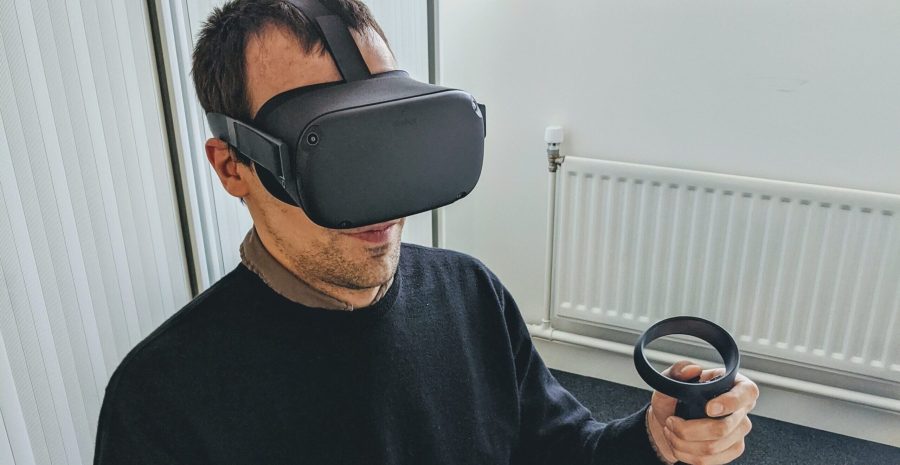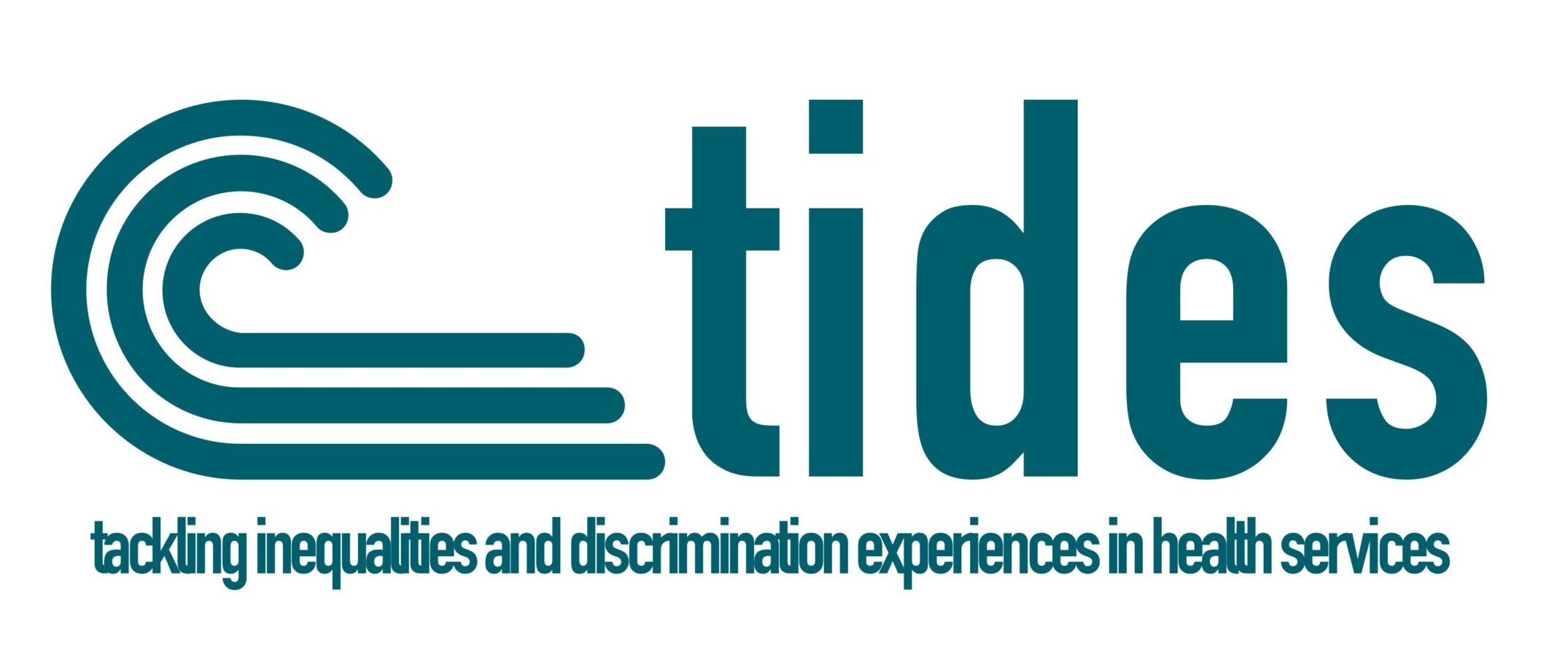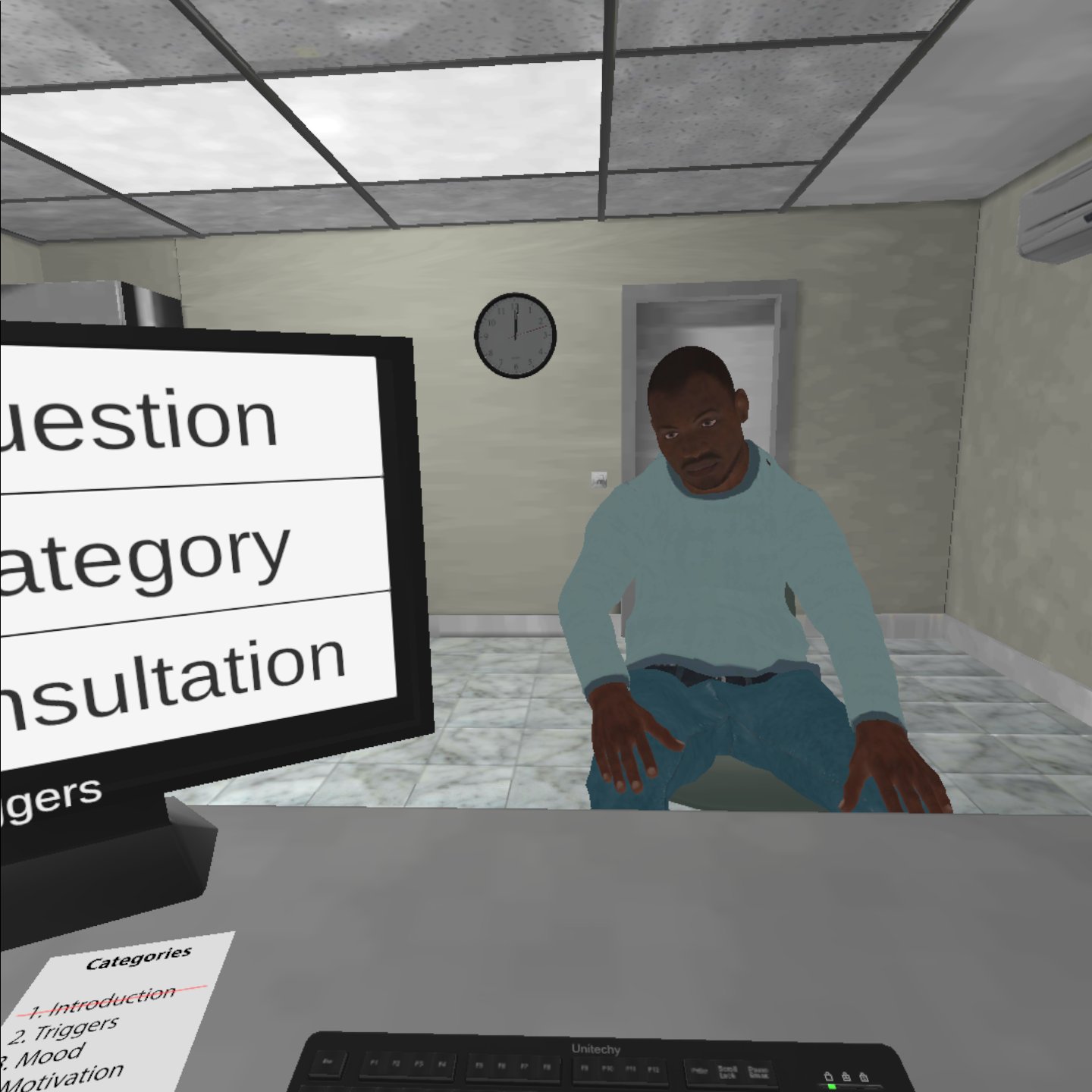Can virtual reality help to reduce racial bias and discrimination in the NHS?

Researchers at King’s College London are using VR to train NHS staff, managers and leaders in order to help them understand the adverse workplace experiences of their racial and ethnic minority staff
By Professor Stephani Hatch, Dr Rebecca Rhead, Luke Connor and the TIDES team
The NHS is the largest employer of ethnic minority staff in England, yet ethnic minority staff experience greater levels of workplace harassment and discrimination – with pervasive effects on their mental health and occupational outcomes. Furthermore, such workplace experiences – more commonly perpetrated by colleagues/managers than patients – have increased over the past five years, particularly in London NHS Trusts [1].
Such adverse working conditions have been exacerbated by the COVID-19 pandemic, which has disproportionately affected ethnic minority healthcare workers [2] who were more likely to have:
- been deployed to frontline roles;
- had less control over their working conditions; and
- had to navigate heightened workplace stresses, stigma, fear and uncertainty around COVID-19 risks for themselves and their families.

It’s important for healthcare organisations to create resources to support healthcare practitioners amid the ongoing global pandemic. Virtual Reality (VR) can be used as a powerful storytelling medium to highlight inequalities in the workplace and to provide novel and effective avenues for training. Now, the TIDES study at King’s College London (KCL) is using VR technology to help reduce discrimination and harassment in the NHS and support staff by creating immersive VR environments that allow users to gain new perspectives.
Understanding discrimination in healthcare
The Wellcome Trust-funded TIDES (Tackling Inequalities and Discrimination Experiences in health Services) study was established in 2017 by Professor Stephani Hatch in response to rising rates of harassment and discrimination in the NHS. Our goal was to understand how discrimination generates and perpetuates inequalities in healthcare by:
- Surveying and interviewing NHS staff to understand their workplace experiences and how it has affected their health;
- Analysing health record data to understand inequalities from the patient’s perspective; and
- Using VR to assess how bias can influence clinical decision-making.

Each interaction between patients and healthcare practitioners can be heavily influenced by biases and discrimination [3, 4], including attitudes and stereotypes about a patient’s race and ethnicity. These attitudes shape clinical interactions and outcomes. Unequal treatment and discrimination have been shown to be one of the strongest predictors of poor patient satisfaction and quality of care [5-8], yet few studies have examined discrimination as a driver of inequalities.
To address this, we collaborated with KCL Virtual Reality Lab and Maudsley Learning to create a ‘virtual consultation room’ that healthcare practitioners could access via a VR headset. We then asked practitioners to carry out virtual health consultations with avatar patients and provide assessments of each one, including ratings of the patient’s probable social role and behavioural characteristics, based on this short interaction.
How we developed this VR project during COVID
In 2020, TIDES received funding from the Economic and Social Research Council (ESRC) as part of UK Research and Innovation’s rapid response to COVID-19, to begin a new phase of research focusing on how inequalities in mental health and work outcomes among NHS staff from ethnic minority groups were being affected by the pandemic. Throughout this phase, we have worked closely with NHS staff, equality, diversity and inclusion leaders, and managers from across the country to understand their experiences.
The experiences reported to us during these one-on-one interviews were used to develop a VR ‘walking in the shoes of…’ training resource in which users, while wearing a headset, are able to follow scripted narratives on witnessing or experiencing workplace discrimination in an immersive 360-degree environment, by embodying staff members from ethnic minority groups as they go about their shifts.
Studies have found that taking the perspective of someone else through VR can be an effective way to promote empathy in different situations, such as increasing helping behaviour, reducing racial bias or decreasing prejudice [9, 10]. Importantly, our collaborators and NHS peer researchers provided feedback throughout the design process to ensure that we provided a realistic view of these experiences, allowing for a greater sense of realism and believability.
We are currently in the post-production phase of development for this ‘walking in the shoes of…’ VR application, having finished filming the 360-degree videos showing actors in hospital settings recreating narratives pulled from our conversations with healthcare staff. We are making final edits with input and feedback from NHS staff, equality, diversity, and inclusion leaders, and managers across the NHS.
Potential beyond healthcare
In the coming weeks we will move on to pilot, rapidly evaluate and refine these VR materials in collaboration with our partners. Once complete, we aim to promote the uptake and utilisation of the ‘walking in the shoes of…’ training programme through our partner networks.
These VR experiences will allow NHS managers, leaders and policymakers to embody and take the perspective of racial and ethnic minority staff members experiencing workplace discrimination – to help educate them about common experiences of discrimination in the workplace, and heighten their understanding of its impact on staff.
We hope this approach can be utilised by the NHS to increase understanding and empathy among NHS leaders, policymakers and staff, providing an opportunity for open discussion about inequalities in healthcare while removing the emotional burden from the affected staff themselves.
There is also great potential for its application beyond healthcare. The use of VR scenarios could be beneficial to a range of other sectors such as education, police, the fire service and other service industries, by providing the opportunity to augment existing race and equality training through the inclusion of immersive experiences.
To find out more about the TIDES project visit tidesstudy.com, follow us on Twitter @tides_study, or email tides@kcl.ac.uk
References
- NHS Equality and Diversity Council. NHS Workforce Race Equality Standard, 2017 data analysis report for NHS Trusts. Available: https://www.england.nhs.uk/wp-content/uploads/2017/12/workforce-race-equality-standard-wres-data-report-2017-v2.pdf. Accessed: 22nd July 2021.
- Public Health England. (2020). Beyond the data: Understanding the impact of COVID-19 on BAME groups. London: Public Health England.
- Schmitt, M.T., et al., The consequences of perceived discrimination for psychological well-being: a meta-analytic review. Psychological Bulletin, 2014. 140(4): p921.
- Truong, M., Y. Paradies, and N. Priest, Interventions to improve cultural competency in healthcare: a systematic review of reviews. BMC health services research, 2014. 14(1): p1.
- Kirby, J.B. and T. Kaneda, Neighborhood socioeconomic disadvantage and access to health care. Journal of Health and Social Behavior, 2005. 46(1): pp15-31.
- Prins, M., et al., Perceived need for mental health care and barriers to care in the Netherlands and Australia. Social psychiatry and psychiatric epidemiology, 2011. 46(10): pp1033-1044.
- Thornicroft, G., Stigma and discrimination limit access to mental health care. Epidemiologia e psichiatria sociale, 2008. 17(01): pp14-19.
- Lasalvia, A., et al., Global pattern of experienced and anticipated discrimination reported by people with major depressive disorder: a cross-sectional survey. The Lancet, 2013. 381(9860): pp55-62.
- Ventura, S., Cardenas, G., Miragall, M., Riva, G., & Baños, R. (2021). How Does It Feel to Be a Woman Victim of Sexual Harassment? The Effect of 360°-Video-Based Virtual Reality on Empathy and Related Variables. Cyberpsychology, Behavior, and Social Networking, 24(4), pp258-266.
- Christofi, M., & Michael-Grigoriou, D. (2017, October). Virtual reality for inducing empathy and reducing prejudice towards stigmatized groups: A survey. In 2017 23rd International Conference on Virtual System & Multimedia (VSMM) (pp1-8). IEEE.
